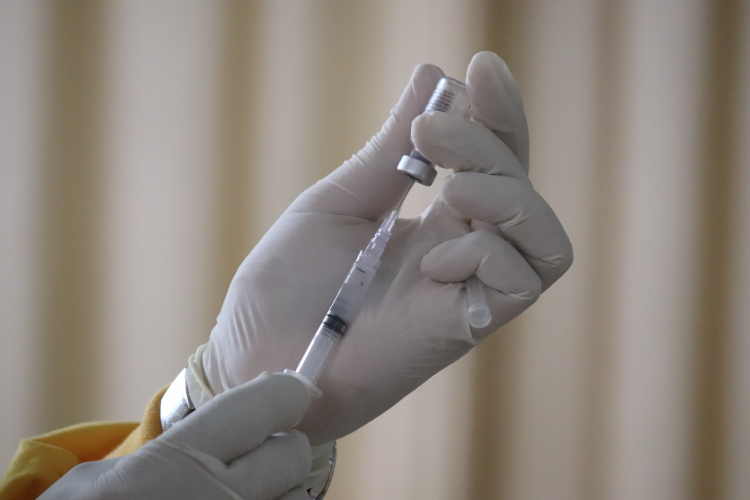The Politics Behind Europe's Vaccine Rollout

In response to many European countries halting the rollout of the Oxford-AstraZeneca vaccine, the World Health Organization says, “At this time, WHO considers that the benefits of the AstraZeneca vaccine outweigh its risks and recommends that vaccinations continue.” France, Germany, Italy, and Spain joined a growing list of European countries to place a temporary ban on the use of the AstraZeneca vaccine on Monday, March 15th, over growing concerns that the vaccine was linked to blood clotting.
The month prior, French President Emmanuel Macron said, “What I can tell you officially is that the early results we have are not encouraging for 60 to 65-year-old people concerning AstraZeneca”.
Regardless of the skepticism in Europe of the AstraZeneca vaccine, the EMA (European Medicines Agency) reviewed the claims of blood clotting related to the vaccine and found no correlation, once again approving it for use in the European Union.
Image credit: Unsplash/Annie Spratt
“It was a political choice,” Nicola Magrini, the director of the Italian Medicines Agency, told la Repubblica newspaper, referencing the halting of the use of the AstraZeneca vaccine. Many scientists and politicians across the continent felt similarly. Almost all of the decisions to halt the use of the vaccine came within 36 hours of each other. Once Germany declared it was concerned with the effects of the vaccine, it was a domino effect. Spain, France, and Italy all followed suit within the same day.
Naturally, these countries claimed that it was simply because they too were concerned with the data, yet the unspoken rule of presenting a united front clearly played a role.
This two-day ban came at a time of a widening split between the EU and the United Kingdom. The Anglo-Swedish company, partnering with Oxford University, finds itself in the middle of a fight between the bloc of 27 and the UK. Yet, at the same time that many EU countries placed a temporary ban on the use of the vaccine, they also claimed that AstraZeneca broke the conditions of their contract by not reaching production quotas.
The science is clear. AstraZeneca is an inexpensive and effective vaccine against COVID-19. Of course, in order to influence public opinion, it is necessary to verify the efficacy and safety of a vaccine. Yet, completely stopping a massive vaccination campaign for over 48 hours has dramatic consequences. Not only did the EU lose precious time in terms of the number of jabs, but they also lost ground in public opinion.
For an already vaccine skeptical continent such as Europe, saying a vaccine has potentially deadly consequences like blood clots, leads to inevitable distrust. The EU’s strategy for the war of public opinion has clearly been ineffective.
Image credit: Unsplash/the blowup
In addition to making wrong steps in terms of public opinion, the EU’s vaccine rollout has been plagued by inefficacy, lack of production, and political turmoil. The EU has exported nearly 40 million doses of vaccines, yet only kept 70 million for their domestic population of nearly 750 million. The EU has blamed their sluggish response on the vaccine production companies. Rumors began in late March that the EU was considering banning the export of the vaccine. While stopping short of a complete ban of exports, they did urge vaccine production companies to fulfill their orders to the EU before other regions.
"It has to honor the contract it has with European member states before it can engage again in exporting vaccines," EU Commission President, Ursula von der Leyen says. "We want to explain to our European citizens that they can get their fair share,” Leyen says.
While the EU is trying to salvage public trust in AstraZeneca, for example, Jean Castex, the Prime Minister of France, took the vaccine the same day it was re-approved by the EMA, it might be too little too late for the public to place their faith in this vaccine.
The inherently political nature of the debate surrounding the AstraZeneca vaccine leads to a broader discussion of public health and vaccines in general. The creation and production of a vaccine in such a short time frame is an undeniable success of modern science. Yet, it has become increasingly clear that even a virus that pays no attention to national territory or borders is not immune to political pushback. Regardless of clear science, many countries have avoided using vaccines from political foes.
Image credit: Unsplash/ Jørgen Håland
This phenomenon has been dubbed "vaccine nationalism". While Europe’s reaction to AstraZeneca has been thought of as a political pushback for Brexit, one of its leaders is simultaneously attempting to prioritize the health of its citizens over politics. Mario Draghi, the new Prime Minister of Italy and the man who is said to have saved the eurozone after the financial crisis of 2008, is apparently in talks with the EU commission to begin the process of approving the Russian vaccine, Sputnik V, for use in the EU.
The EU is in desperate need of a rapid solution to their lagging vaccine rollout. The economy of Europe has been especially devastated by travel restrictions as tourism is one of the largest sectors of the European economy. The possible creation of “vaccine passports” and loosening travel restrictions provides a possible solution to reinvigorate tourism in Europe, but it will be a tough road ahead, particularly as several countries on the continent introduce new lockdowns and further travel restrictions.










